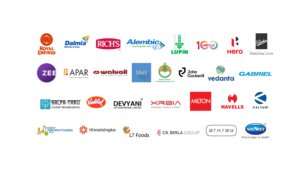SAP Material Flow System (MFS) : Integration with Automation – The Future of EWM : In the ever-evolving landscape of warehouse and logistics management, staying competitive means embracing the latest technologies. One of the most promising advancements in this field is the integration of SAP MFS (Material Flow System) with automation technologies, such as robotics and conveyors. The Material Flow System (MFS) has become an integral part of SAP’s Extended Warehouse Management (EWM). This integration not only streamlines operations but also paves the way for the future of Extended Warehouse Management (EWM).
The Rise of Automation in Warehousing
The logistics and warehousing industry has witnessed a significant transformation in recent years. With the growing demand for faster deliveries, higher accuracy, and cost-effective solutions, automation has become the cornerstone of modern warehouse operations.
Automated systems have proven to be exceptionally efficient in repetitive and time-consuming tasks. Robots, for instance, can navigate the warehouse floor, pick and pack items, and transport them to the designated locations with unparalleled precision and speed. On the other hand, conveyors are efficient at transporting goods across different stages of the warehouse, reducing manual handling and errors.
Role of SAP Material Flow System (MFS) in Automation Integration
SAP Material Flow System (MFS) plays a pivotal role in making the integration of automation technologies seamless and effective. Here’s how:
1. Real-Time Communication
SAP MFS acts as the bridge between your EWM and automation equipment, facilitating real-time communication. This ensures that all systems are synchronized, and there is a continuous flow of information. For example, when an order is placed in EWM, SAP MFS can instantly relay this information to the robots or conveyors, instructing them to start picking and moving items.
2. Task Assignment and Optimization
One of the key strengths of SAP MFS is its ability to intelligently assign tasks to automation equipment. It considers various factors such as item size, weight, priority, and availability of resources to optimize the workflow. This ensures that automation is used to its full potential, reducing idle time and maximizing efficiency.
3. Error Reduction
Integration with SAP MFS minimizes the risk of errors in automation processes. It constantly monitors the status of tasks and equipment, ensuring that any issues or anomalies are promptly addressed. This reduces the chances of errors in picking, packing, and transporting goods.
4. Scalability
SAP Material Flow System (MFS) is highly scalable, allowing businesses to expand their automation capabilities as their needs grow. Whether you’re adding more robots, conveyors, or other automated equipment, SAP MFS can adapt to accommodate these changes seamlessly.
5. Data Insights
The integration of SAP MFS with automation technologies generates a wealth of data. This data can be harnessed to gain valuable insights into warehouse operations. Businesses can analyze performance metrics, identify bottlenecks, and make data-driven decisions to further optimize their processes.
The Future of EWM: A Seamless Blend of Human and Machine
The integration of SAP Material Flow System (MFS) with automation technologies is not just a current trend; it’s a glimpse into the future of Extended Warehouse Management. The future warehouse will be a harmonious blend of human workers and robots working in tandem. Here are some key takeaways:
1. Increased Efficiency
Automation reduces manual labor and accelerates order processing. This means quicker order fulfillment, fewer errors, and improved customer satisfaction.
2. Cost Savings
While the initial investment in automation can be substantial, the long-term cost savings through reduced labor and enhanced efficiency are significant.
3. Enhanced Safety
Robots and automated equipment can handle heavy lifting and repetitive tasks, reducing the risk of workplace injuries for human workers.
4. Adaptability
As customer demands evolve, the flexibility of automation integration allows warehouses to swiftly adapt to changing requirements.
5. Competitive Advantage
Early adopters of SAP Material Flow System (MFS) and automation integration will enjoy a competitive advantage in the market, as they can provide faster and more accurate services.
In conclusion, SAP Material Flow System (MFS) integration with automation technologies is revolutionizing the world of Extended Warehouse Management. It’s not just about increasing efficiency; it’s about redefining the way we think about warehousing and logistics. The future of EWM lies in embracing automation as a partner in the journey towards faster, more accurate, and more cost-effective warehouse operations. Those who invest in this future now are sure to reap the rewards in the years to come.
Read More


 RECOGNISED WORLD OVER SOLUTIONS
RECOGNISED WORLD OVER SOLUTIONS
 Find out how BSC GLOBAL digitally transformed P2P cycle for worlds renowned brand in Automobile
Find out how BSC GLOBAL digitally transformed P2P cycle for worlds renowned brand in Automobile







